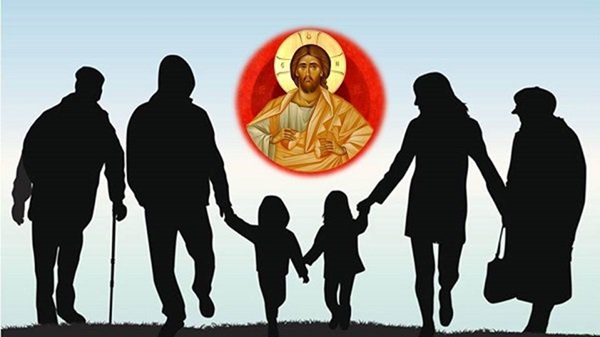On Love
13 April 2019This period of Great Lent through which we’re passing, and also the worrying social phenomena we see on a global scale, challenge and invite us as people to reflect on and weigh up why it is that almost the whole of mankind is in turmoil. Tension between ourselves and between nations, loathing and intolerance within states and between different people are part and parcel of daily life. The result is conflicts, sometimes of considerable proportions, with people as the victims. Even worse, these victims often belong to the most vulnerable groups who have no responsibility for or relation to the criminal behaviour of those at whose bidding the disasters were created.
What’s the cause of all the turmoil and confusion, which is worsening by the day? Supposedly we’ve made impressive progress in all fields of social, political, cultural, economic and scientific life and in every sphere of activity. Alas, all these achievements haven’t secured peace and calm, either on a personal or family level, or social and national level, or even in global terms. When taking a sober look at this state of affairs, almost everyone wonders what’s causing it.

If you consider it in good faith, it’s not hard to discern that the cause of all the desolation which is occurring is the lack of love.
And this is the strange thing here. In our daily life, we’re exuberant in our verbal expressions of love. Parents, especially mothers, say ‘my love’, to their children; as do husbands and wives. Lovers say it passionately. Friends address each other by it and at all official functions [in Greece], the address begins ‘Beloved’. So it’s in very wide, general use, to the extent that, logically, we should be a society of love. In practice, however, we can all see the contradiction. Love and its expression are no longer properly understood and each one of us expresses it in the way we personally take it to mean. Behind the love expressed there’s the ego, the self, which is sometimes revealed in a robust manner and at others more subtly and ‘politely’.
Let’s look at the way it’s expressed in the closest of relationships.
Between spouses: In the old days, how many vows of love were made in a marriage- and in today’s reality, a long time before it? Love without bounds. So intense that the couple can’t help but demonstrate it, to the extent that sometimes they act inappropriately in public. It might even bear fruit. It might come to marriage. Then, sooner or later, most couples begin to complain. Their characters are incompatible. Despite the fact that they’ve got children, they begin divorce proceedings. The vows, the passion, their relationship are fractured.
Is this love?

Parents and children: How can we even describe our relations with our children? Although the burden lies on the side of us parents, we experience this behaviour on both parts in our everyday lives. It’s a social phenomenon with dramatic consequences. In large part, our priority as parents isn’t the care of our children. Our work, our career, our relationships, our social obligations and our ‘respectability’ in general and our personal success are what we aim at, to the extent that the children are an obstacle to our advancement. The delinquent behaviour of our children- which is a warning sign that we should be turning our attention and interest towards them- bothers us all the more because it spoils our ‘good image’ among those around us; it affronts us. Instead of feeling sorry that our child is suffering from a lack of real love and is sending out danger signals through its behaviour, we’re more in love with our own image and the behaviour of our children ticks us off, if you’ll pardon the expression. We reel off the sacrifices we’ve made for them and complain that all we get in return is ingratitude.
Is this love?
Behaviour towards parents: Let’s be honest. By and large, we think of our parents, grandparents as a burden, though I’d like to think I’m wrong. The in-laws, particularly the mother- are a burden. The people who brought us into the world, who raised us with sacrifices similar to those we boast of to our own children, are a burden. All the poor parents do is pray for their children and grandchildren, and help where they can, their sole reward being a smile or a kind word. At some stage, this behaviour will come back to haunt us.
Is this love?






